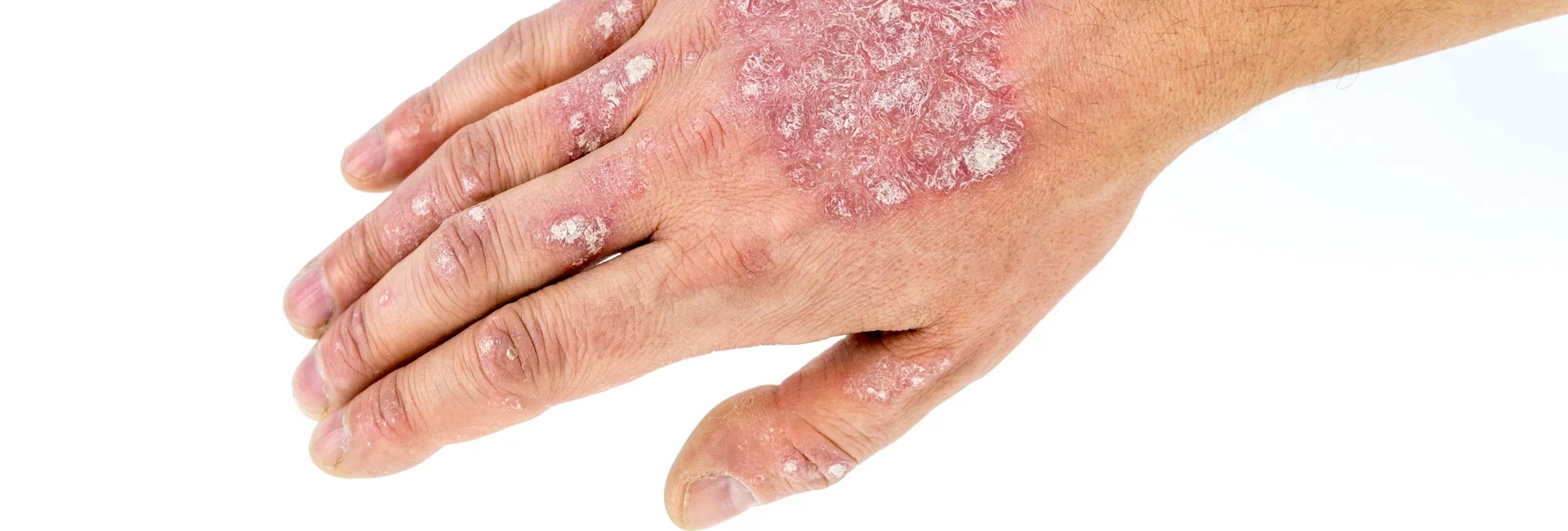Psoriasis can affect 7.5 million Americans, and it is not just a cosmetic issue. Nearly 60 percent of individuals diagnosed with psoriasis said that this disease caused issues in their daily life.
Read on to learn more about this disease, diagnosis and treatment options.
WHAT IS PSORIASIS?
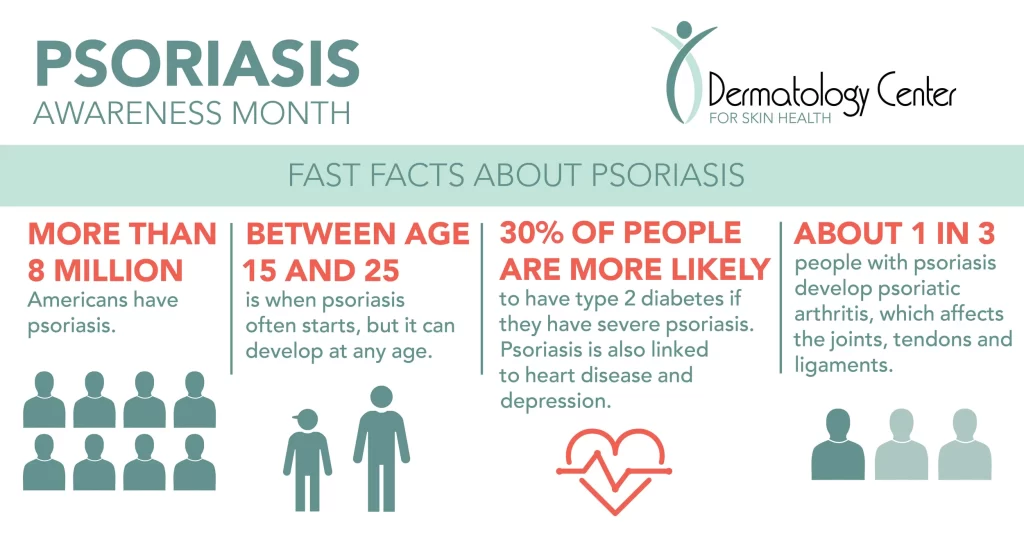
Psoriasis is an immune-mediated inflammatory disease (IMID) that can cause red, raised and scaly patches to appear on the skin that can grow at a fast rate. Though it can affect any part of the skin, it is most commonly found on the outside of the elbows, knees, scalp and genitals.
Psoriasis can develop between the ages of 15 and 35. This type of rash can be associated with other health conditions such as diabetes, heart disease and even depression.
Did you know that there are five types of psoriasis?
TYPES OF PSORIASIS
Please note that psoriasis is not contagious, and it is not an infection. Psoriasis can range from mild, moderate and severe.
- Mild: Covers three percent of the body
- Moderate: Covers three to ten percent of the body
- Severe: Covers ten percent of the body
Plaque
This is the most common form of psoriasis. This rash forms red, raised patches that have white, dead skin cells. Common areas affected include the scalp, knees, elbows and back. This type of rash can bleed.
Guttate
This form of psoriasis, another common type, can occur during childhood and develops as small white lesions that look like dots. Guttate psoriasis can appear suddenly and can be triggered by respiratory infections, stress, medications or tonsillitis.
Inverse
This rash can occur under the arm, in the groin or behind the knee (in body folds). It appears as red, sometimes shiny, lesions.
Inverse psoriasis most commonly develops in individuals who are overweight, middle aged or seniors.
Pustular
This rash develops white pustules, consisting of white blood cells, around red skin and can occur on the hands and feet.
Genetics and the environment factors, such as, certain medications and some topical solutions, can cause pustular psoriasis.
Erythrodermic Atopic Dermatitis
This is the most severe and rare form of psoriasis. This rash can cause itching, pain and peeling skin. Other signs include the skin feelings warm, eyelid and lymph node swelling.
Erythroderma can be associated with other skin conditions, including:
- Pityriasis rubra pilaris
- Drug eruption
- Dermatitis
If you believe that you have this type of psoriasis, schedule an appointment with your dermatologist immediately. This type of psoriasis can be life-threatening.
Erythroderma can cause heat loss, fluid loss, secondary skin infections and protein loss.
DIAGNOSIS OF PSORIASIS
While there are no tests that can diagnose psoriasis, a dermatologist can examine the affected area and determine the diagnosis. During your examination, a biopsy can be done. Under a microscope, a flake of psoriasis can look thicker and inflamed.
TREATMENT OF PSORIASIS
As psoriasis can appear anywhere on the skin, there are many different treatments that can be effective.
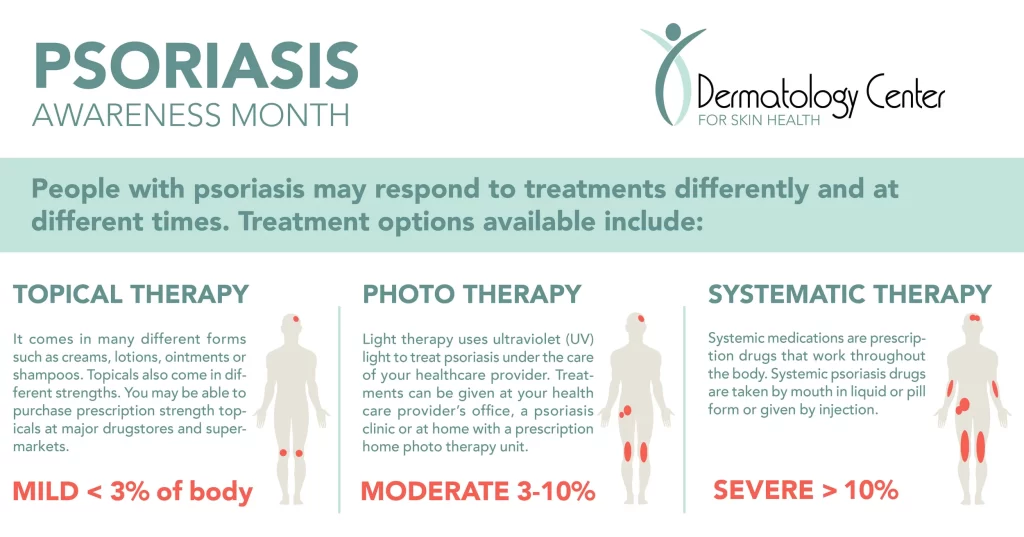
A dermatologist can prescribe light therapy, topical treatments and oral or injectable drugs.
If you need treatment for psoriasis, schedule an appointment below:
IS PSORIASIS DIFFERENT THAN ECZEMA?
Psoriasis and eczema are different. A few key differences are:
- There is no cure for psoriasis, only treatment. Eczema can be cured with topical treatment.
- Eczema is characterized by red, dry and cracked skin that could blister. Psoriasis is characterized by think red or white patches of skin.
- Eczema can be triggered by factors, such as the soap and laundry detergent you use to allergies, dust or pets. Psoriasis, on the other hand, is triggered by stress, medications, illnesses and dry air.
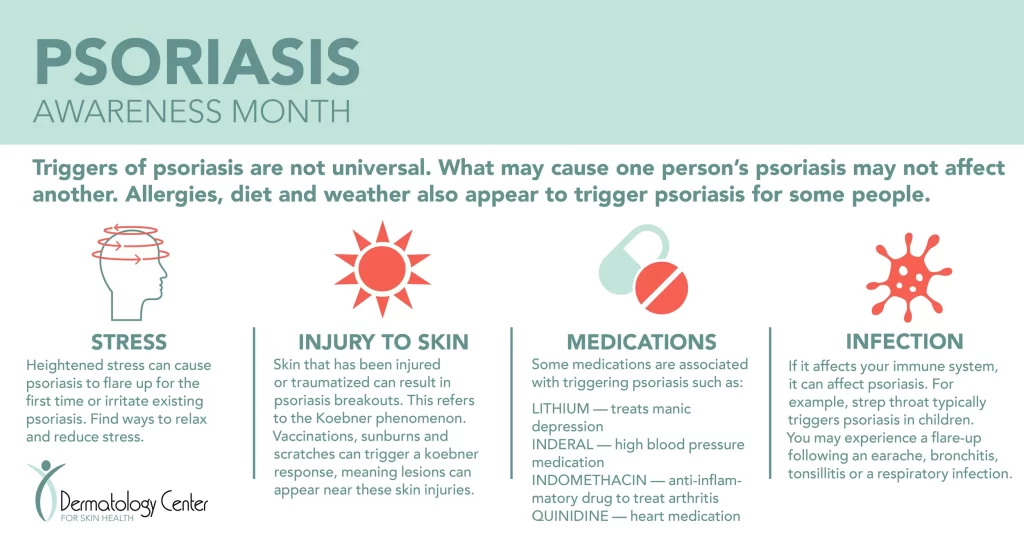
DERMATOLOGY CENTER FOR SKIN HEALTH, PLLC | PSORIASIS
Psoriasis can be a serious health issue that should not be ignored. If you have questions about psoriasis, our certified-dermatologists can answer those for you and help you find a treatment.
We are committed to delivering quality care to informed patients in a comfortable and convenient setting.
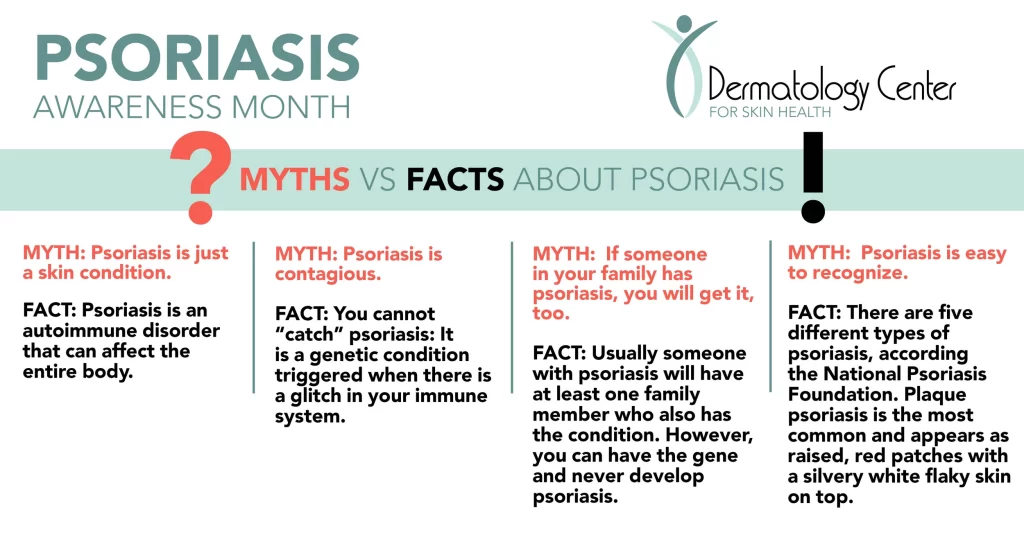
If you want to learn more about psoriasis or other skin rashes and acne, click below:

